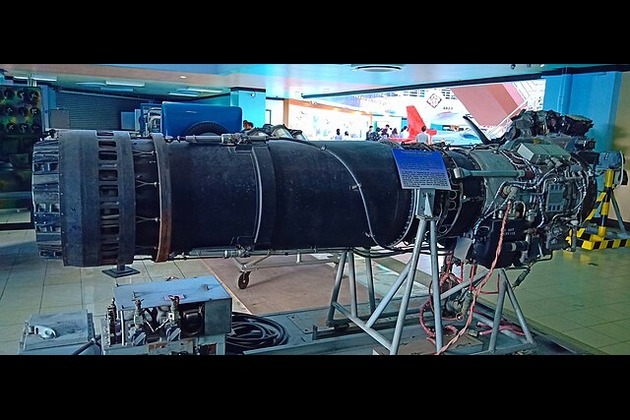How Labour lost working class support in UK's 'left behind' regions
The Conversation
09 Dec 2019, 23:58 GMT+10

Labour is battling to retain a number of seats that have long been the party's strongholds in the upcoming UK general election. Many of these areas are in the North of England and Midlands. They are post-industrial parts of the country where there was a substantial vote to leave the European Union in 2016. Boris Johnson's Conservative Party is leaning heavily on this, with its promise to "get Brexit done".
To understand the appeal of Brexit in these areas and the disillusionment with Labour, we need to understand the huge economic challenges they face. Much of this is the result of austerity. More than simply public spending cuts, it's important to recognise austerity as an economic model, which was first introduced by Margaret Thatcher's government in the 1980s and has been embedded into the UK's economic and social landscape since.
As well as cuts, austerity is a package of measures that includes privatisation, a regressive tax policy, reduction in wages and labour rights to make the workforce more "flexible". Meanwhile, the attack on welfare has been a prominent feature of austerity. By 2020 there will be Pound 27 billion less spending on social security than a decade earlier. As the UN's poverty expert Phillip Alston put it in his 2019 report on Britain:
Loss of support
The New Labour governments of the late 1990s and early 2000s were guilty of continuing the economic model introduced by Thatcher, and as a consequence abandoning its core electorate. This was a major reason for the Brexit vote and a major loss of support among working class communities for Labour.
For example, a Joseph Rowntree Foundation study I was involved with looked at policies for deprived regions carried out under the 2005-07 Labour government. It found that funding cuts, privatisation and contracting out of employment services were the dominant policy models. Regeneration initiatives lacked the necessary resources to tackle the economic and employment needs of people living in deprived areas.
These are regions that once provided well-paid, skilled jobs for communities, with opportunities for career progression. Now the main employers are warehousing, retail parks and call centres which tend to offer insecure, unskilled and low-paid work.
The 2008 financial crisis gave rise to Conservative-led governments implementing draconian policies. These had devastating impacts across the UK, but in particular the former industrial areas of the north and Midlands. A 2014 report into the economic and social conditions of the former coalfield areas of the UK - former industrial heartlands and historic Labour strongholds - concluded:
This was in the wake of the recession. But the follow-up 2019 report found that the former coalfields still lag behind on a number of indicators. The local economies remain weak, large numbers of people remain out of work on incapacity benefits, while many others claim in-work benefits.
Voting for change
The city of Sheffield, once a centre of steel, manufacturing and coal industries is another Labour stronghold that voted to leave the EU, raising some challenges for Labour in the upcoming election. The city has been significantly affected by austerity-driven cuts to public services. A recent study on the city region's labour market, which I completed, found that between 2010-14 welfare and local government cuts alone resulted in Pound 1.19 billion lost income from the region.
In another study carried out in 2018, colleagues and I found that regional wages are at a lower level than they were in 2008 and most employment growth has been low paid and insecure. Reliance on food banks is high and benefit sanctions are hurting people deemed "fit to work", but who are sick or disabled. According to one citizens' advice centre we spoke to:
The Sheffield city region is an area with relatively low educational attainment, where insecure and precarious work is the norm. It typifies the "left behind" parts of the country where there has been a shift in voting from Labour to the Conservatives or Brexit Party.
Deindustrialisation also meant de-unionisation - the loss of thousands of trade union jobs and trade union infrastructure, which acted as an important voice and social glue in deprived areas. Ultimately, deindustrialised areas and working class communities became disenfranchised and vulnerable to poverty. This led to frustration and anger.
In the absence of a coherent alternative to austerity and, more importantly, a previous lack of active engagement by the Labour Party with its core electorate, a vote to leave the EU was a vote for change. And for some it was as an expression of protest.
Sociologist Peter Taylor Gooby perceptively points out that, through Brexit, elites closely linked to the Conservative government are positioning the UK within an increasingly globalised economy. The prospect is a "race to the bottom", with the potential for market competition policies being used to reduce social protections and employment rights even further.
In many respects the Labour Party led by Jeremy Corbyn, along with the country's trades unions, is attempting to steer the country in a direction that avoids this outcome. But the key challenge for them is engaging with and winning the confidence of marginalised working class populations.
Author: David Etherington - Professor of Local and Regional Economic Development, Staffordshire University 
 Share
Share
 Tweet
Tweet
 Share
Share
 Flip
Flip
 Email
Email
Watch latest videos
Subscribe and Follow
Get a daily dose of Business Sun news through our daily email, its complimentary and keeps you fully up to date with world and business news as well.
News RELEASES
Publish news of your business, community or sports group, personnel appointments, major event and more by submitting a news release to Business Sun.
More InformationFinancial Markets
SectionFTC’s rule to ease subscription cancellations struck down by court
WASHINGTON, D.C.: A federal rule designed to make it easier for Americans to cancel subscriptions has been blocked by a U.S. appeals...
Musk’s X loses CEO Linda Yaccarino amid AI backlash, ad woes
BASTROP, Texas: In a surprising turn at Elon Musk's X platform, CEO Linda Yaccarino announced she is stepping down, just months after...
Ex-UK PM Sunak takes advisory role at Goldman Sachs
NEW YORK CITY, New York: Former British prime minister Rishi Sunak will return to Goldman Sachs in an advisory role, the Wall Street...
Gold ETF inflows hit 5-year high as tariffs drive safe-haven bets
LONDON, U.K.: Physically backed gold exchange-traded funds recorded their most significant semi-annual inflow since the first half...
U.S. stocks recover after Trump-tariffs-induced slump
NEW YORK, New York - U.S. stocks rebounded Tuesday with all the major indices gaining ground. Markets in the UK, Europe and Canada...
Stocks slide as Trump unveils 25% tariffs on Japan, S. Korea
NEW YORK CITY, New York: Financial markets kicked off the week on a cautious note as President Donald Trump rolled out a fresh round...
Technology
SectionMusk’s X loses CEO Linda Yaccarino amid AI backlash, ad woes
BASTROP, Texas: In a surprising turn at Elon Musk's X platform, CEO Linda Yaccarino announced she is stepping down, just months after...
Rubio impersonator used AI to reach officials via Signal: cable
WASHINGTON, D.C.: An elaborate impersonation scheme involving artificial intelligence targeted senior U.S. and foreign officials in...
TikTok building U.S.-only app amid pressure to finalise sale
CULVER CITY, California: TikTok is preparing to roll out a separate version of its app for U.S. users, as efforts to secure a sale...
Trump admin allows GE to restart engine sales to China’s COMAC
WASHINGTON, D.C.: The U.S. government has granted GE Aerospace permission to resume jet engine shipments to China's COMAC, a person...
US State Department to begin mass layoffs within days media
Nearly 2,000 jobs in the executive branch dealing with foreign policy are reportedly on the chopping block The US State Department...
Recall of Chinese engineers from Foxconn India factory is opportunity for India: Govt source
New Delhi [India], July 11 (ANI): The recall of Chinese employees from the Foxconn India factory, which manufactures Apple iPhones,...












